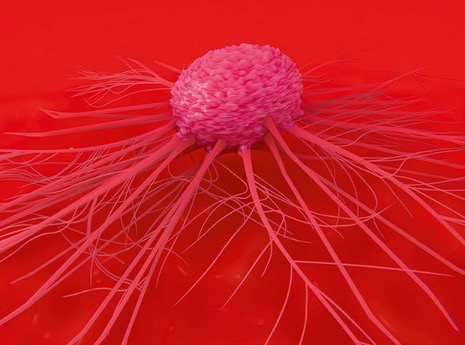Researchers reveal two different subtypes of prostate cancer using AI
March 6, 2024
Source: drugdu
 401
401
 In the UK alone, the aggressive form of cancer affects around 52,000 men every year
In the UK alone, the aggressive form of cancer affects around 52,000 men every year
Researchers from the University of Oxford and the University of Manchester have revealed that prostate cancer is not just a single disease and is made up of two different evotypes – subtypes of the disease.
Published in Cell Genomics, the study, funded by Cancer Research UK and Prostate Cancer Research, used artificial intelligence (AI) to reveal a new form of aggressive prostate cancer.
Currently the most common cancer affecting men in the UK, prostate cancer is responsible for around 52,000 cases every year.
As part of the Pan Prostate Cancer Group; an international consortium set up by the Institute of Cancer Research (ICR) and the University of East Anglia (UEA), researchers applied AI to analyse the genetic data of 159 prostate cancer patient samples across nine countries.
Using whole genome sequencing to study changes in the DNA of prostate cancer samples, researchers then identified two different cancer groups among these patients using an AI technique known as neural networks.
Using their findings, the team went even further and integrated all the information to generate an evolutionary tree to portray how the two subtypes of prostate cancer developed, showing two distinct evotypes.
Researchers hope that their findings could revolutionise how prostate cancer is diagnosed and treated, ultimately leading to more tailored treatments for individual patients according to a genetic test delivered using AI.
Dr Dan Woodcock from the Nuffield department of surgical sciences, University of Oxford, said: “Our research demonstrates that prostate tumours evolve along multiple pathways, leading to two distinct disease types” and “allows us to classify tumours based on how the cancer evolves rather than solely on individual gene mutations or expression patterns”.
Professor Colin Cooper, researcher from UEA Norwich Medical School, commented: “We hope that the findings will not only save lives through better diagnosis and tailored treatments in the future, but they may help researchers working in other cancer fields better understand other types of cancer too.”
https://pharmas.com/news/researchers-reveal-two-different-subtypes-of-prostate-cancer-using-artificial-intelligence/
By editorRead more on
- Gusekirumab Injection Accepted by CDE, Multiple Pipelines Advancing Simultaneously March 4, 2026
- Yifan Pharmaceutical’s teriparatide injection has been accepted by the CDE (Center for Drug Evaluation), adding a new domestic player to the osteoporosis treatment field March 4, 2026
- //news.yaozh.com/archive/47318.html PD-1 sales surge March 4, 2026
- A major breakthrough! Roche’s oral BTK inhibitor achieves its third Phase III clinical trial victory, a game-changer in the multi-billion dollar MS (manufactured pharmaceuticals) market. March 4, 2026
- GB19 Injection Approved for Clinical Trials of Cutaneous Lupus Erythematosus March 4, 2026
your submission has already been received.
OK
Subscribe
Please enter a valid Email address!
Submit
The most relevant industry news & insight will be sent to you every two weeks.



